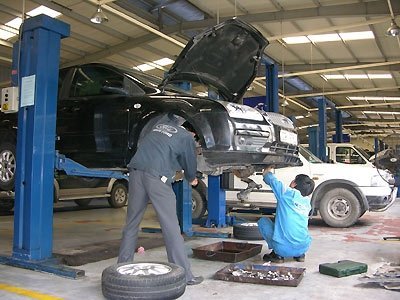
Vietnam and the US just normalised their relationship in 1994. But, today both countries are working together on a growing array of important issues, from responding to HIV/AIDS to protecting the environment, supporting education through the Vietnam Education Foundation and the Higher Engineering Education Alliance Program and bolstering trade and investment
Clinton's two-day visit aims to enhance the relationship between the nations in the context of a strategic partnership.
"Through cooperation over the years in concluding the Bilateral Trade Agreement, Vietnam's accession to the World Trade Organization (WTO), and now joining the negotiations for the Trans Pacific Partnership (TPP) Trade Agreement we have developed and are developing the foundation for expanded trade and investment," said Herb Cochran, executive director of AmCham.
The US is now the largest export market for Vietnam-located companies with total export turnover in 2011 at $16.7 billion. In the first half this year, Vietnam’s export turnover to the US was $9.3 billion, up 19.8 per cent year-on-year.
In terms of investment, the US is now the eighth largest investing country in Vietnam, with 621 projects capitalised at $10.4 billion. In fact, many US' multinational companies invested in Vietnam right after the US government lifted the embargo to Vietnam in 2004. Those include Coca-Cola, Cargill, Crown, Kimberly-Clark, Pepsico and P&G.
After Vietnam joined the WTO, other investors like Nike and Target took the plunge. Cochran said there was a new wave of US investment tapping Vietnam as the two countries negotiate the TPP and the ASEAN Economic Blueprint in 2015.
"US direct investment in higher technology and higher value-added modern manufacturing and services is increasing, led by the Intel investment of $1 billion in an assembly and test facility in Saigon Hi-Tech Park, and scores of other smaller investments," he said.
Hari Achuthan, managing director and chief executive officer of New York-based ACO Investment Group, said while the investment climate is challenging globally, especially in the West where more distressed opportunities seem to be available, the Asia Pacific region appears to be an attractive place for growth opportunities, including Vietnam.
“We see strong growth opportunities in Vietnam as long as the necessary reforms are established, especially for American firms to sell equipment and services here and bring their operational expertise to help produce value added products and services,” said Achuthan.
ACO Investment Group is now looking for investment opportunities in renewable power, consumer goods and infrastructure sectors in Vietnam.
Jabil, a global electronic manufacturing company, recently had a groundbreaking ceremony to build a $70 million factory in Saigon Hi-Tech Park in Ho Chi Minh City, after five years of successful operation in a rented facility.
Two months ago, General Electrics also decided to expand investment in its factory in Haiphong city to produce wind turbines. Stuart Dean, chief executive officer of GE in ASEAN, said the firm would recruit 1,000 workers for the Haiphong factory.
"These companies are successful and expanding, and more are coming," said Cochran.
He said the key factors that have made US investors pay attention to the Vietnam market were a large and young workforce available at reasonable costs, a drive for education and training in the work force, a growing consumer market, the ability to protect intellectual property better than some other competitive investment destinations and political and social stability.
Furthermore, he added, improved infrastructure including industrial parks, transportation, telecommunications, and strong trends of economic and social development supported by international financial institutions including the World Bank and Asian Development encouraged US investors to Vietnam.
However, US investors face challenges in Vietnam.
The AmCham statement at the recent Vietnam Business Forum highlighted the revised Labour Code and slow state-owned enterprise reform as examples of concern that Vietnam may be "stalling" in the transition from foreign direct investment to produce low value-added consumer goods, to the foreign direct investment in modern manufacturing factories that produce higher value-added products and related services for export to the US and global markets.
"The risk is that Vietnam not only may fail to make the transition to a middle-income, modern-manufacturing and services economy, but also Vietnam may not be competitive even in production of low value-added consumer goods compared with other emerging markets and production bases. This could lead to a loss of existing foreign direct investment and millions of jobs in Vietnam," said Cochran.
VIR